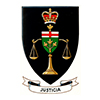Regional Practice Directions & Forms
In addition to the Consolidated Provincial Practice Directions – counsel, parties, the media and the public should consult the specific Regional practice directions.
To determine to which region your courthouse location belongs, please see Contacts & Scheduling.
